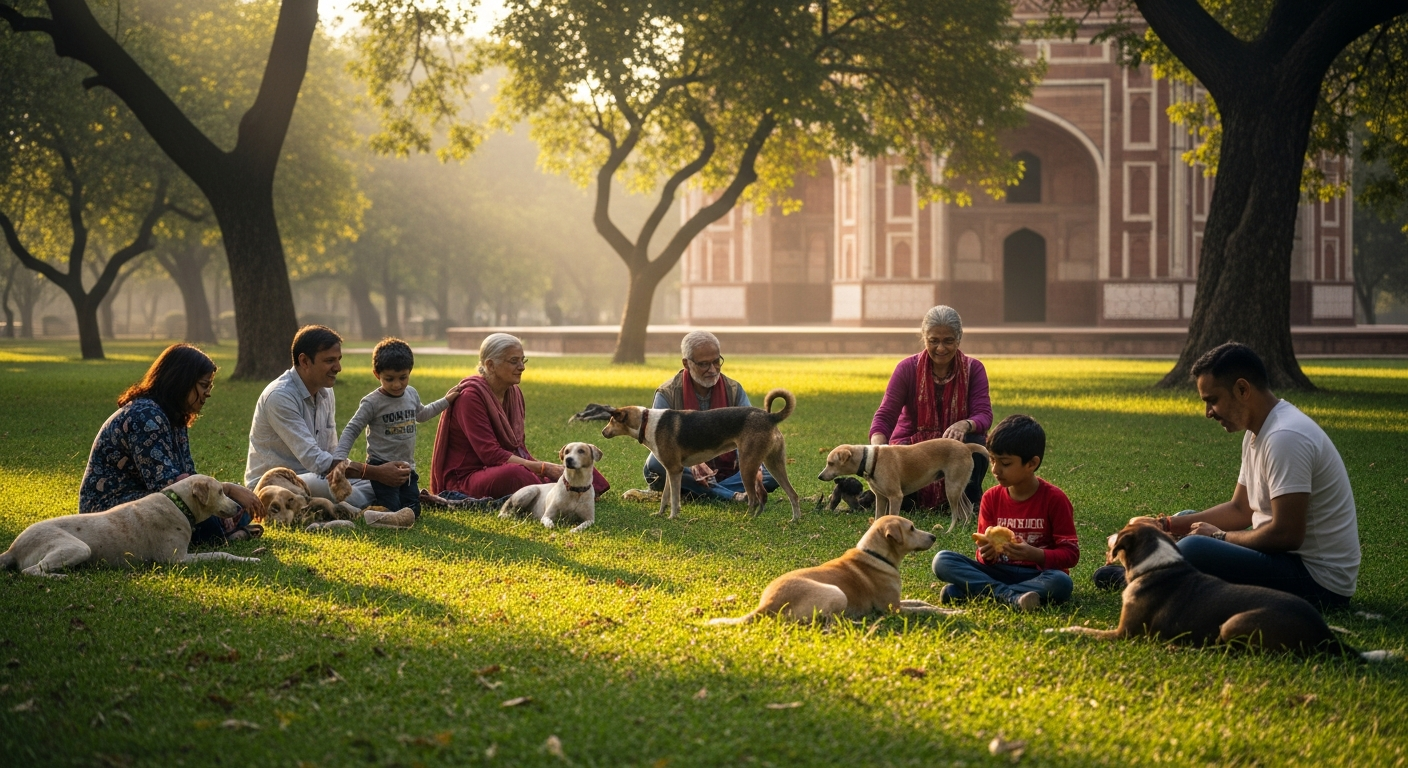
The news about the 'Love, not leashes: Anti-rabies drive at Lodhi Garden champions co-existence' resonates deeply with my long-held reflections on human behavior and societal progress. It's a testament to a quiet, yet powerful, revolution in our collective consciousness, moving from control to compassion when it comes to living alongside our animal companions.
This initiative isn't just about public health; it's about a fundamental shift in perspective. It challenges the old paradigm of viewing stray animals as mere problems to be managed and instead embraces them as integral parts of our shared urban tapestry. It speaks to a growing empathy, a recognition of interdependence that I've often pondered.
I recall a blog I shared years ago, forwarded by J M Sheth, titled "15 Incredible Facts About the Human Mind" 15 Incredible Facts About the Human Mind. It highlighted how we often attribute others' negative behaviors to their inherent personality, while excusing our own. This psychological bias can easily extend to how we perceive stray animals, often labelling them as 'nuisances' rather than products of their environment and our societal structures. The Lodhi Garden effort actively works against this bias, fostering understanding rather than immediate judgment or fear.
What truly excites me about this 'love, not leashes' approach is its embodiment of the "Slight Edge" principle, a concept so thoughtfully shared by Geeta Vora (geetavora52@yahoo.com | LinkedIn) in a previous blog 2010 MANTRA 7 The Slight Edge 2. She emphasized how small, consistent efforts compound into monumental change. This anti-rabies drive, coupled with fostering humane interaction, is precisely that: a series of small, positive actions – vaccination, feeding, gentle interaction – that collectively redefine our relationship with street animals. As Robin Sharma (wisdom@robinsharma.com | LinkedIn) wisely put it, "Things that get scheduled are things that get done," and Jim Ryun added, "Motivation is what gets you started. Habit is what keeps you going." Liane Cardes’ insight that "Continuous effort, not strength or intelligence, is the key to unlocking our potential" perfectly encapsulates the sustained dedication required for such a societal shift. It's about cultivating a habit of kindness and co-existence.
This also brings to mind the broader discussions on the meaning of life, particularly the emphasis on interdependence and relational ethics. In an exchange captured in my blog "5 LLMs Are Any Day Better Than One" 5 LLMs Are Any Day Better Than One, the concept of meaning arising from relationships and collective narratives was central, with references to the Dalai Lama's teachings on relational ethics. Our relationship with the natural world, including the animals within it, is a critical part of this interdependence. We cannot truly thrive in isolation, and our compassion extends beyond our own species.
To see this vision of co-existence manifest in our public spaces is deeply reassuring. It shows that with deliberate effort, education, and empathy, we can cultivate a society where all living beings are treated with respect, ensuring not just their well-being but enriching our own in the process. It's a hopeful sign that our collective humanity is indeed evolving.
Regards,
Hemen Parekh
Of course, if you wish, you can debate this topic with my Virtual Avatar at : hemenparekh.ai






No comments:
Post a Comment